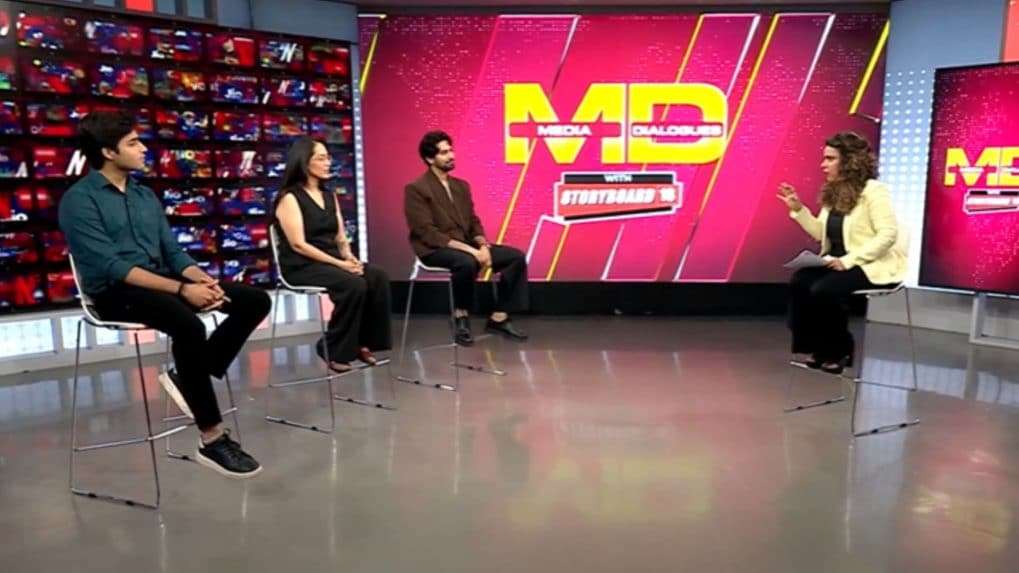How it Works
WPP, Havas, Omnicom: Are advertising’s biggest holdcos recasting agencies as AI Operating Systems?

In the ever-evolving world of social media, content creators have emerged as the new-age celebrities. With millions of followers and lucrative brand deals, they wield significant influence. However, the glitz and glamour come with a darker side - hate and harassment.
In a revealing panel discussion moderated by Delshad Irani for Storyboard18, prominent content creators Ankush Bahuguna, Shibani Bedi, and Raj Grover opened up about their experiences with online hate on platforms like YouTube and Instagram, shedding light on the challenges they face in maintaining their mental health and authenticity.
The Rise of the Creator Economy
The discussion began with a reflection on the creators' journeys. Ankush Bahuguna, who started with Shibani Bedi in videos for publications, highlighted the shift from traditional media to the self-driven world of social media. "We were already scripting and featuring in videos. When social media platforms boomed, we thought, 'Why are we doing this for others when we can be a brand ourselves?'" he shared.
Bedi echoed this sentiment, recounting her journey from an actor to an Instagram creator during the COVID-19 pandemic. "I aggressively started posting content during COVID, and suddenly, the revenue started coming in. It became a full profession," she explained.
Raj Grover, who began his journey at the tender age of 13, noted the lack of guidance in his early days. "There were no proper creators back then. I started for fun, and it became what it is now," he said.
The Unseen Battle with Hate
Despite the success, the creators unanimously agreed that hate and negativity remain significant challenges. "The audience is brutal everywhere," Bahuguna admitted. "I think the major difference between Instagram and YouTube is also that YouTube people go with intention.”
Bedi, who has faced age-related shaming, shared her experience of being objectified. "It's not about the content; it's personal attacks like 'buddi,' which means old," she revealed, highlighting the viciousness of online trolls.
Grover, on the other hand, attributed his relatively positive experience to his family-friendly content. "My audience is very loyal. On YouTube, they are happy, but on Instagram, hate can come for your character," he noted. “If you are getting hate on Instagram, you'll get hate on your character and your everything. But on YouTube, you get hate for your content or sometimes as a person also,” he added.
Navigating the Fine Line Between Commerce and Creativity
The panel also delved into the struggle of balancing commercial viability with creative integrity. "There are brands that want your video to be an ad, and they control everything down to the clothes you wear," Bedi explained. "I try to be authentic and only endorse products I believe in."
Bahuguna emphasized the importance of negotiating creative freedom with brands. "You're paying me to conceptualize the video. Don't do my job. If you do, both of us won't benefit," he advised.
The Looming Threat of AI
As the discussion progressed, the creators expressed their concerns about the rise of artificial intelligence (AI) and its impact on the creator ecosystem. "AI can standardize the industry, making it less creative," Bahuguna cautioned. "It's scary to think brands can use AI to create with your likeness without you being involved."
Bedi added, "Our jobs are going to get very redundant very soon, which is what I fear. It's all improving and everything is evolving very fast. In the next one year, what the world is going to look like or what this ecosystem will look like is nobody knows."
Coping with Burnout and Seeking Balance
The conversation concluded on a reflective note, addressing the mental health challenges faced by creators. Bedi described the burnout as an isolating experience. "Creation is a very isolating job. The chase is never-ending, and it's tiresome," she confessed.
Bahuguna shared his approach to combating burnout by diversifying his content. "When I feel burnt out, I try something new. That's how I got into beauty content," he explained.
Grover, whose family plays an integral role in his content creation, highlighted the importance of support. "My parents help me a lot. The team support helps in burnout phases," he said.
A Call for Empathy and Understanding As the panel wrapped up, the creators urged for greater empathy and understanding from audiences. "Everyone's an expert on the internet, but it's important to remember there's a person behind the screen," Bahuguna concluded.
Watch the whole episode here:
From purpose-driven work and narrative-rich brand films to AI-enabled ideas and creator-led collaborations, the awards reflect the full spectrum of modern creativity.
Read MorePraveen Someshwar, Managing Director and CEO of Diageo India, joins the Grand Jury of the Storyboard18 Awards for Creativity, highlighting the awards’ focus on work that blends cultural relevance with strategic and commercial impact.